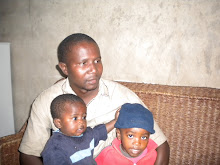 I am convinced that the genuine participation of
churches in accountable local governance is an
investment in the democratic ideal.
We ought to engage local government
because it is our moral and constitutional
obligation to do so and also because we enhance
the culture of democracy born through the first
democratic election of 1994. Furthermore, we are
required to work together to protect the public
space with the endowment of democratic
participation.
Churches are an immense resource, have a
distinctive critical and constructive role to play in
the civil discourse and their absence will leave
the discourse poor and unsustainable – I would
argue that society is impoverished when religious
perspectives of life is excluded and marginalised.
There is a great African proverb which says. “If
you want to walk fast, walk alone but if you want
to walk far, walk with others” hence I call for much
closer cooperation and interaction with all those
involved in a vision for a new society. Citizens of
faith have a prior moral and legal responsibility
for accountable governance – governance that
protects and cares for the vulnerable, the poor,
the excluded and the marginalized. The Book of
Proverbs (31:8-9) puts it plainly: “Speak out for
those who cannot speak, for the rights of all the
destitute. Defend the rights of the poor and
needy.” Such is our calling – no more – no less.
Let us remember that the greatest gift that we
can bestow upon this and the future generations
is to wrestle together with the challenges of our
time to build a more human and prosperoussociety
I am convinced that the genuine participation of
churches in accountable local governance is an
investment in the democratic ideal.
We ought to engage local government
because it is our moral and constitutional
obligation to do so and also because we enhance
the culture of democracy born through the first
democratic election of 1994. Furthermore, we are
required to work together to protect the public
space with the endowment of democratic
participation.
Churches are an immense resource, have a
distinctive critical and constructive role to play in
the civil discourse and their absence will leave
the discourse poor and unsustainable – I would
argue that society is impoverished when religious
perspectives of life is excluded and marginalised.
There is a great African proverb which says. “If
you want to walk fast, walk alone but if you want
to walk far, walk with others” hence I call for much
closer cooperation and interaction with all those
involved in a vision for a new society. Citizens of
faith have a prior moral and legal responsibility
for accountable governance – governance that
protects and cares for the vulnerable, the poor,
the excluded and the marginalized. The Book of
Proverbs (31:8-9) puts it plainly: “Speak out for
those who cannot speak, for the rights of all the
destitute. Defend the rights of the poor and
needy.” Such is our calling – no more – no less.
Let us remember that the greatest gift that we
can bestow upon this and the future generations
is to wrestle together with the challenges of our
time to build a more human and prosperoussociety
Palavra do Bispo da Igreja Metodista da RSA,
Ivan Abrahams

